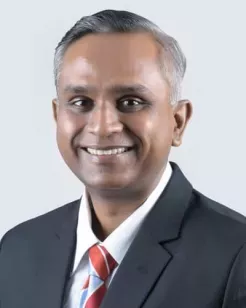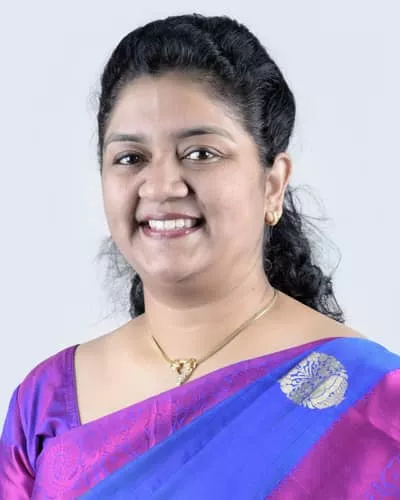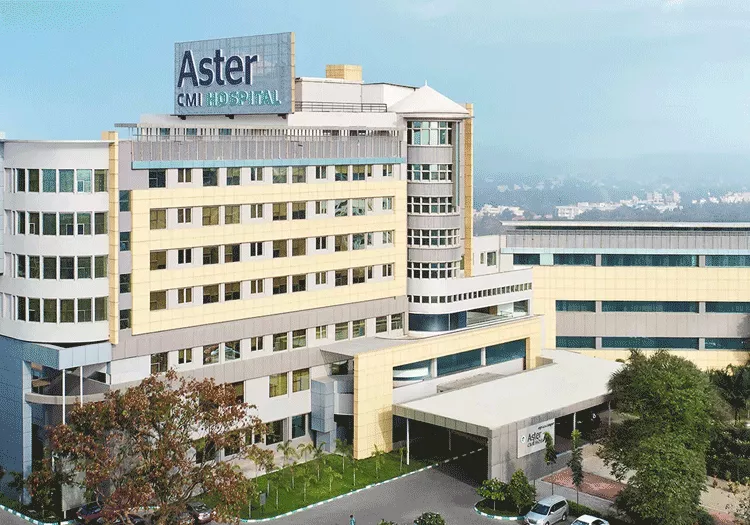Overview
Life-limiting illnesses affect any age group from a newborn to the elderly. The journey faced by the patient and family is distressing in the physical, emotional, psychological, social, and spiritual dimensions – causing ‘Total Pain”. Pain and Palliative Medicine is a specialized field of medicine that provides individualized care through early identification and aggressive management of distressing symptoms for the patient and family. The care provided can be in the hospital or at home (Aster Care Extended). Improved symptoms are crucial to better quality and dignity of life through treatment for the illness. A team of professionals who include pain and palliative specialists, Chronic Pain specialists, Palliative nurses, Palliative coordinators, Psychologists, Nutritionists, Rehabilitation specialists, Physiotherapists, and Occupational therapists work together with you as the center of care. Pain and Palliative care support is provided from the time of diagnosis, working alongside your primary doctor. Chronic pain through the life-limiting illness is also aggressively managed by the team. Care at the end of life is only a part of the care delivered.
We have some of the best specialists from around the world, they bring years of experience and offer evidence-based treatment to ensure the best care for you.




Palliative care is provided to individuals facing any of the following conditions:
ALS (Amyotrophic lateral sclerosis)
Alzheimer's disease
Cancer
COVID-19 lasting effects
COPD (Chronic obstructive pulmonary disease)
Heart disease
HIV & AIDS
Kidney disease
Liver disease
Lung disease
MS (Multiple sclerosis)
Parkinson's disease
Stroke
If you are going through any of the above illnesses or know of anyone going through them, you understand the difficulties faced. Pain and Palliative Specialist supports you through the journey of the disease. The aim is to help improve your quality and dignity of life despite the illness and the effects of its treatment. Palliative support begins at the time of diagnosis. We support you through treatment and in certain patients, at the end of life. Palliative care is not synonymous with the end of life. End of life is only a part of the care we provide.
Yes! In fact, international guidelines for all illnesses recommend the introduction of palliative care at the time of diagnosis and continuing alongside curative treatments. The palliative care team walks with you through the journey helping with the management of the side effects of curative treatments like pain, nausea, vomiting, mucositis, lymphedema, constipation, malignant wounds, pressure sores. This in turn enables you to complete your treatment with as little gaps as possible.
Palliative care is total care for a patient and family faced with a life limiting illness. Palliative care is provided from the time of diagnosis, through the trajectory of illness, alongside disease management, at the end of life and continues to care for caregivers during bereavement. A hospice is a place of care providing symptomatic care at the end of life, which is usually during the last 6 months of life.
NO! Medications for each symptom are individualized after a thorough assessment of the patient. The medications are prescribed as per the National and International Guidelines. The medication's dosage is increased, decreased, or rotated as per the changing needs of the patient. There is always a detailed discussion with the patient and the caregiver. All opportunity is given for clarification of doubts regarding the prescriptions. Numbers for the department are always provided to ensure ease of communication.
Providing care for the elderly is one arm of Palliative care. The support for the Geriatrician/ physician/caregiver as they care for the elderly. Polypharmacy (taking multiple medications), dementia, frailty, bedbound, Parkinson’s disease, stroke, chronic lung conditions where they are on long term oxygen therapy, chronic kidney disease on dialysis but now unable to tolerate dialysis. These are a few situations we can support you. We are here to guide you in the ways to improve the quality and dignity of the life of our elders.
The distress experienced is physical, emotional, psychological, social, economic as well as spiritual. All these together make up ‘Total Pain’. Palliative care is the holistic care provided in the concept of ‘Total Pain’ for patient and family.
As with our aging process, there are pain syndromes that we can face such as osteoarthritis/ frozen shoulder/ low back pain/ headache. These issues aggravate the symptom burden from the life limiting illness. Pain and palliative department manage these aggressively as well.
By addressing these challenges, the Pain and Palliative team is pivotal in improving the quality and dignity of life, helping you live the best each day.
NO! It does in no way mean you are giving up. Palliation is here to surround with a ‘cloak’ of care, from the time of diagnosis. Palliation strongly believes that there is always something that can be done to help an individual and family. It is about fostering the right hope, setting achievable goals, and living life to the best extent possible each day.
YES! Palliative care can be provided in the comfort of the patient's own home. The Specialist Palliative Physician oversees the care plan of the patient, the Trained Palliative Nurse specialist educates the nurse at home, Pain and Palliative specialist educates the family, and the Palliative Co-ordinator ensures smooth communication with the team. Regular tele-consultation is continued by the Specialist Palliative Physician. The ethos of non-abandonment upon discharge home is assured.
Helping the family understand the legal requirements at home should the patient wish to be at home till their demise, is also part of our support. This prevents the pain and suffering of the caregiver during the most painful time.
Pediatric Palliative Care (PPC) focuses on providing individualized symptom relief, improving the quality of life, and addressing the emotional, psychological, and spiritual needs of children facing serious illnesses, as well as their parents and siblings. PPC supports children through their journey, even when aggressive management of the disease is no longer possible and offers comfort and care until the end. Our care is extended to conditions such as newborn babies born with congenital abnormalities, cancer, inborn errors of metabolism, neurological conditions, cerebral palsy, and congenital heart disease to name a few.
The bereavement support service is initiated at the end of life. Understanding the family and the relationship with the patient during the end of life helps us understand the distress faced by each member of the family. We do accept that Indian families have rituals that keep them busy for a certain period after their loss. Yet, should the family need our support, we extend it through bereavement support. This is extended to adults and children. The purpose of this support is to stand by you as you find your way again in a world that is filled with a void that cannot be replaced. Supporting you till you feel strong enough to find a new meaning in facing the world.


